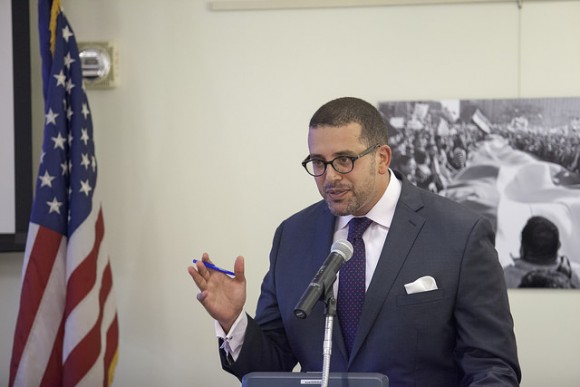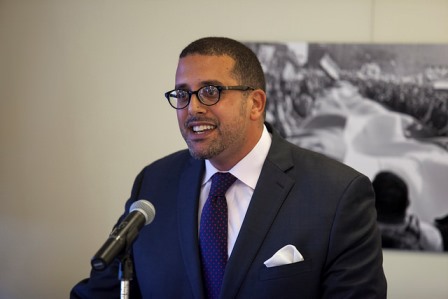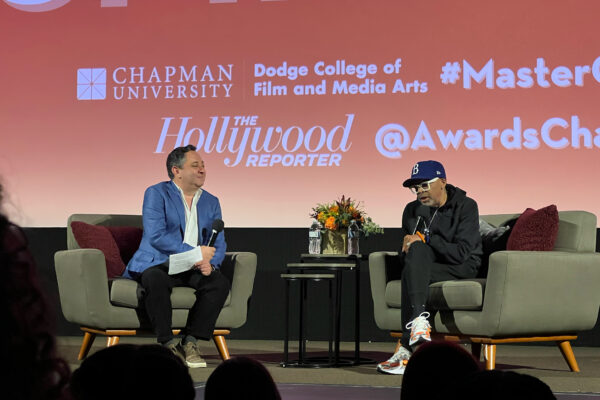Hoping to thwart the recruitment of young people into violent radicalism, The White House recently gathered a range of social service providers, educators, mental health professionals, religious leaders and law enforcement officials at its Summit on Countering Violent Extremism.

Professor Ahmed Younis was among the community leaders attending the White House Summit on Countering Violent Extremism. (File photo)
Among those community leaders was
Ahmed Younis
, an adjunct faculty member, Ph.D. candidate in the
College of Educational Studies
and author of
Gender Justice: The Situation of Women and Girls After the Arab Spring
and
American Muslims: Voir Dire [Speak the Truth]
. Younis attended the summit as a member of a task force working under the auspices of the Department of Justice and Homeland Security. Their focus is to find ways of helping young Muslims build constructive roles in American society through community-oriented programs — work that sometimes goes by the moniker of CVE (countering violent extremism).
Younis, along with other members of the Los Angeles delegation and their counterparts from Boston and Minneapolis, discussed their work for more than five hours with Vice President Joe Biden, who opened the summit.
We asked Younis, a former senior consultant at Gallup and a senior analyst of the Gallup Center for Muslim Studies, to recount highlights of the conversations.
On some of the messages he conveyed …
“I talked about the need for dual literacies among the young Muslims in America. A literacy in Islam that allows them to push back against radicalizing narratives that argue for violence as a means of amplifying Muslim identity. So, you’ve got to know what the Koran is, you have to understand what the importance of the experience of the prophet is, you’ve got to know what the difference is between history and modernity, between religion and sociology. Unless you do, anybody who comes along and says a couple sentences in Arabic is going to take you right on down the road to extremism.
The second literacy we have to build is civic literacy – the ability of young Muslims to understand the potential for social change. They feel a significant amount of oppression and there are avenues for articulating that disenfranchisement and for bringing about that change.”
On what surprised him during the summit …
“There was a total acceptance and acknowledgement of Muslim-Americans being at the apex of the solution on this problem. We have not always been there. … Muslim-Americans are fatigued with talking about their oppression. They’re fatigued with reacting. They’re fatigued with the forms that have already existed in their condemnation of terrorism and extremism. Muslim-American life is ripe for a paradigm shifting experience and I think this CDE work has really pushed us along this road.”
On what needs to happen next …
“There needs to be funding for performance evaluation of pre-existing grass roots programs on countering violent extremism. There has to be a carve-out in the budget of research for folks to go in and systematically understand what is working and what is not working and why in order that we can advance research exponentially as opposed to baby steps.”





Buy Essays, Research Papers, Term Papers, Thesis, & Dissertations.http://www.assignmenttutors.us/